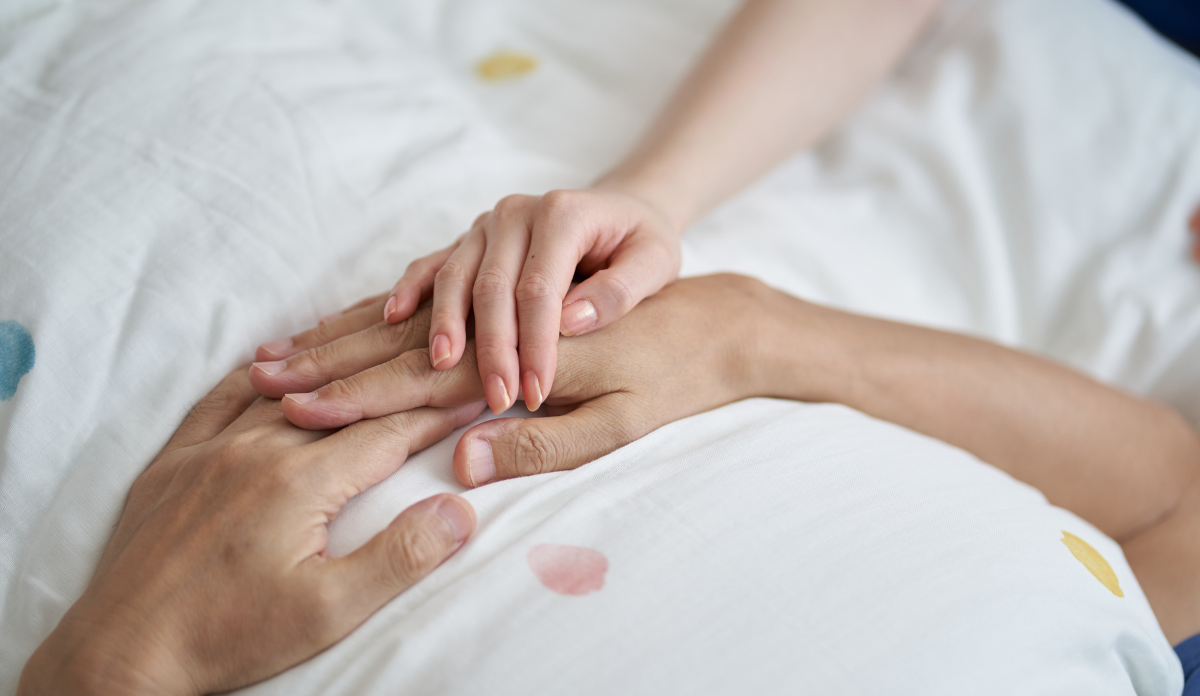“Talking about sex won’t make you pregnant. Talking about death won’t make you dead.” These are the words of Alua Arthur, a prominent death doula and founder of Going with Grace, an end-of-life resource organization.
Arthur is alluding to both the stigma around preparing for death in the United States and the Positive Death Movement’s attempts to change how we experience death. Since 2003, the number of people who die in hospitals has been decreasing, and in 2016, the percentage of people who died away from acute care hospitals exceeded hospital deaths for the first time. But most deaths still take place in an institution when including nursing and hospice facilities, despite the overwhelming preference to die at home. Death doulas like Arthur are working to bridge the gap between where and how we hope to die and the reality of medicalized end-of-life care.
The term “doula” may conjure an image of someone who facilitates childbirth. Indeed, “birth doulas” can improve birthing outcomes in the U.S. End-of-life or death doulas help families and individuals navigate the final life transition. They reduce the emotional burden of decision-making, ranging from transferring social media account passwords to completing advance directives on how or when to prolong life. Their holistic approach to death encompasses the physical, emotional, social, and spiritual needs of the dying person.
Amy Page and Jonelle Husain conducted an exploratory study to describe the roles and identities of end-of-life doulas. They collected surveys from 618 individuals registered with the International End-of-Life Doula Association (INELDA), the only national certifying organization in the U.S. for end-of-life doulas. The surveys asked doulas about demographic characteristics, employment backgrounds, services offered, and their experiences providing end-of-life care. They also interviewed 39 survey respondents to learn about the challenges and benefits of their work.
Almost all (91.4%) of the death doulas surveyed were female. Most have another job and do their doula work as volunteers with organizations or assist family and friends. Less than 4% are employed as a full-time death doula.
Death doulas are not hospice workers or medical providers. They help patients get their affairs in order, decide how they want to die, and explore ideas about the afterlife. This can include “death meditation” to ease discomfort and fear. But their work often requires cooperation with medical providers.
Because they frequently rely on referrals from hospice workers, death doulas are not always called early enough. The lack of knowledge about end-of-life services among the general public and medical providers can limit the doula’s ability to complete their work if they arrive too late. And while some doulas partner with hospices, it can be difficult to gain the trust and respect of the medical care team.
Page and Husain highlight that the work of both birth and death doula traditions is rooted in the unpaid physical and emotional labor of women of color. However, the study found that most people (90.4%) who are serving as trained death doulas are White. As the movement gains traction, the authors highlight that death doulas should avoid cultural appropriation of this care and the services provided.
The authors also found that health insurance reimbursement is a key factor shaping who accesses and receives professional end-of-life services. When paid, death doulas are more likely to be hired by individuals earning higher incomes since the services are not covered by insurance, Medicaid, or Medicare. Birth doulas have already charted this path, and have recently begun to be reimbursed by some private health insurance companies. The study participants suggested that death doulas as a group may not be interested in the regulation that comes with being reimbursed by insurance.
Cultural understandings of death and dying are changing as dying people and their families seek to de-institutionalize and demystify the process. But conversations with death doulas are not just for those who are dying imminently. It is never too early to explore what a meaningful death looks like. As Arthur says, “One day, you and I will die. But before that day comes, let us live.”
Photo via Getty Images














